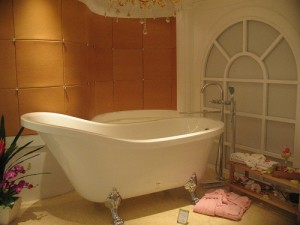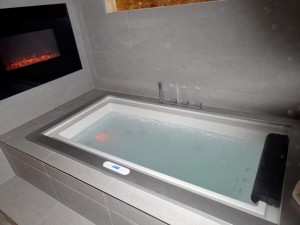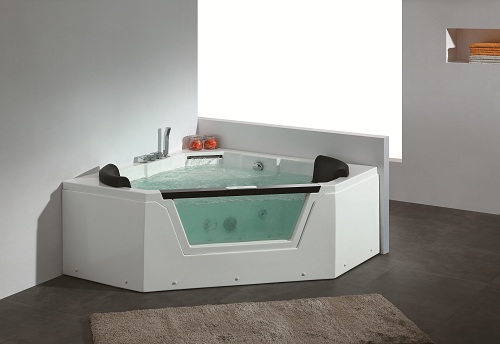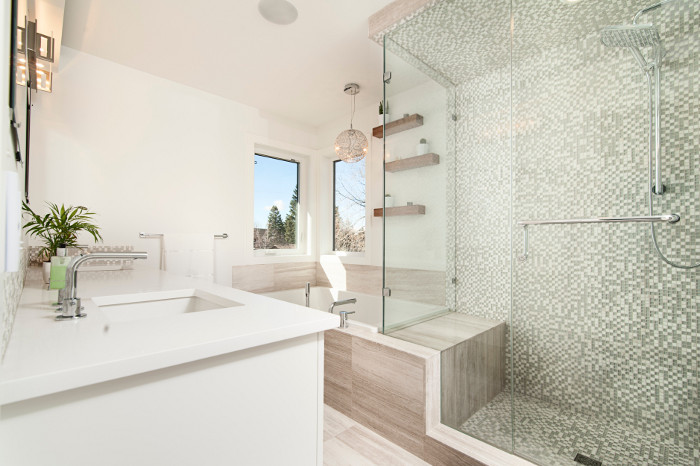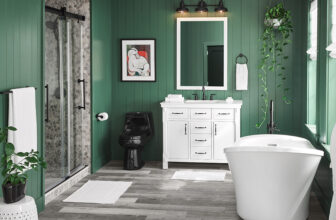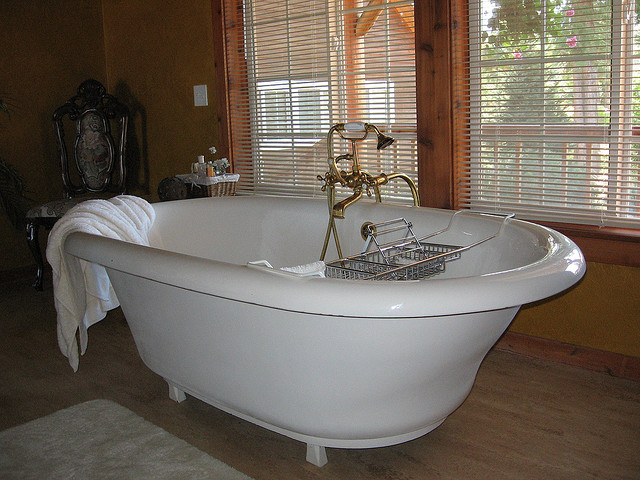
The Different Types of Bathtubs
Do you plan on installing a bathtub in your bathroom? Then check out the different types of bathtubs that you can choose from, including: freestanding baths, drop-in bathtubs, wall alcove baths, cultured marble tubs and corner bathtubs.
Today you will find a multitude of styles of bathtubs from Classic to Traditional to modern and both jetted and non-jetted bathtub models.
1. Freestanding Baths – Freestanding baths, in the simplest sense, are those that don’t connect to any walls for support. This is where some of the most innovative ideas in bathtub design have been allowed to grow in recent years, resulting in the use of a variety of unconventional shapes, materials and themes. Clawfoot baths and pedestal baths are technically ‘freestanding baths’, but the category itself also includes many other varieties. Source: Build
2. Drop-In Bathtub – Want to break out of the box? That is, the three-sided box that encloses the alcove tub? Then a drop-in bathtub might be for you. You can have a carpenter build a deck or peninsula that juts into the room, installing the tub into that piece.
Drop-in tubs come with their own rim. These tubs can be installed in an alcove, but most often are installed in a more open area. As such, the drop-ins usually require more floor space than alcoves and cost slightly higher: about $600-$700. Source: About Home
3. Wall Alcove – tub-shower combinations are the most common tub type and are designed to maximize space. The unfinished ends usually get sandwiched between an exterior wall and a handy built-in storage cabinet. A wall-mounted shower is a typical accompaniment. These are usually your most inexpensive style of bathtub. Source: HGTV
4. Cultured Marble – Cultured marble is another form of ‘engineered stone’ whereby crushed marble is combined with resins to produce a solid-surface product. You could say it’s similar to quartz countertops in that regard. Cultured marble is typically covered with a clear gelcoat to provide a durable, easily cleaned and stain resistant surface finish. It’s ability to be “cast” (poured into a mold and formed) makes it a good material for bathtubs. It’s also a brittle material and isn’t forgiving of over-tightened faucet and spout fixtures that can crack the surface. While surface scratches can usually be buffed out, cracks are usually unrepairable. Source: Home Style Choices
5. Corner Bathtubs – Corner bathtubs can be good when you want a large bathtub for 2 people and still save as much space as possible. They can be of free standing type or drop-in style, soaker tub or jetted. The most luxurious bathtubs are usually a corner model. Source: Beauty Saunas and Baths
- How to Choose the best bathtubs for Hydrotherapy
- Tips on Repairing Bathtub Leaks
- 3 Tips to Converting a Tub to a Shower
- 3 Benefits of a Whirlpool Bathtub
- How to Keep Your Whirlpool Tub Clean
- 3 Tips for Replacing a Bathtub
- Built-In Bathtubs Vs Freestanding Tubs: How To Choose
- Best Modern Bathtub Designs
- The Different Types of Bathtubs
- The Whirlpool Bath: Spa-Style Bathroom Luxury You Can Afford


